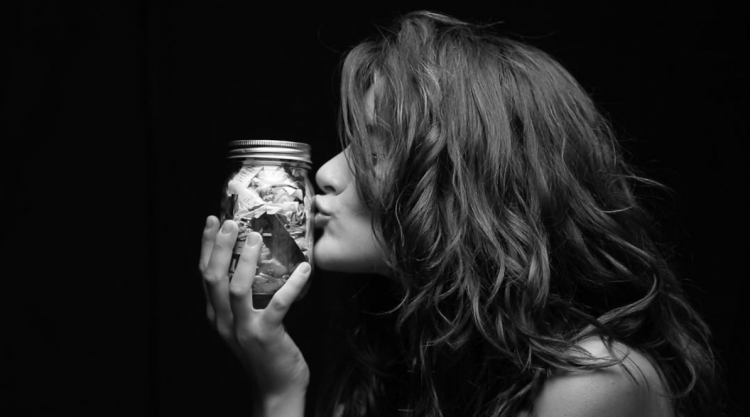Being a Conscious Consumer

For someone who claims to love this Earth and wants to protect our environment, I didn't feel like I was doing enough. I cut out a lot of my meat consumption after high school, which isn't worthy of calling myself a vegetarian or a vegan, but still a small step forward. After watching a bunch of Lauren Singer's videos on YouTube late, in bed one night, I decided to do more intensive research.
Why go zero-waste?
We have all heard of the 3 R's: reduce, reuse, and recycle. We put a lot of emphasis on recycling, yet reducing our production of trash is actually the best way to eliminate our environmental footprint. Our trash either gets recycled, recovered and burned for energy, or buried in landfills. When trash is sent to landfills, it doesn't only take up a lot of space, but it also emits toxic compounds into the air. Sadly, often our trash doesn't even make it that far and ends up in huge ocean garbage patches that significantly hurts our marine ecosystem.
You may have already seen a video where she shows the little amount of trash she accumulated over 4 years that she can fit in a mason jar. Singer, who is based in New York City, founded Trash Is For Tossers, a blog dedicated to the zero-waste lifestyle, and was even a featured speaker for TEDxTeen in 2015 where she explained why she leads a zero-waste lifestyle. Bea Johnson is another famous zero-waste blogger and French-native who also spoke at TEDxMünster. There are even some zero-waste articles on Martha Stewart's website. I've compiled the basics on how to hop onto the zero-waste train.
Know what you're getting yourself into
Zero-waste isn't actually 100% zero-waste, and that's okay because you're at least reducing your personal trash. And while policy changes do help, individuals can make a more important difference. It just takes time and patience. It doesn't mean you can't ever buy anything, but instead try to purchase Earth-friendly, organic, compostable products.
Non-packaged groceries
Day By Day is a chain of épiceries en vrac, also known as a bulk supermarkets in English, located in the 7e, 15e, and 17e arrondissements. They sell food without packaging: spices, oils, tea, coffee, chocolate, pasta, and even cat and dog food. The list goes on, really, but they don't sell fresh produce. You'll have to go to a farmer's market or even a grocery store (with your own eco-friendly reusable bags) to get your fruits and veggies. Some grocery stores, notably Bio c' Bon, Franprix, and Carrefour Bio, have begun following the consommation en vrac trend with a selection of non-packaged products such as grains, coffee, wine, and oils. There are plenty of videos on YouTube explaining how to shop zero-waste, otherwise user-friendly online grocery stores have also emerged such as Mes Courses En Vrac (MCEV).
I've noticed that the French tend to be a little more aware of the amount of waste they produce. I occasionally see people weigh their produce without using a (supposedly bio-degradable) plastic bag and just slapping the price sticker directly onto one of the fruits or vegetables instead; it doesn't seem to bother the cashiers at grocery stores too much either. France also banned plastic bags as of July 1st 2016 and will be banning plastic plates and cutlery in 2020.
Composting your organic waste
Composting is another important part of zero-waste. Alex Bilodeau wrote an article on composting in the city of Paris and her goal to "reduce [her] landfill waste in Paris to one kitchen garbage bag per three months." If you choose to try zero-waste living and you don't find yourself anywhere near this goal, don't be discouraged. It is crucial to take baby steps when introducing a drastic change in your life.
Zero-waste hygiene and beauty
Peacock Play published a video on Zero-Waste Living a couple of years ago, which shows an AUP student making some of her own zero-waste toiletries. However, if you can't let go of the idea of store-bought liquid shampoo, remember, there are a lot of different ways you can live zero-waste. Day By Day and MCEV also sell various hygiene products including dishwashing pods, liquid and solid shampoos, body soaps, solid toothpaste (great for travel), bamboo toothbrushes, and feminine hygiene products, if you prefer not to D-I-Y.
Going an extra mile
Making changes in your kitchen and hygiene routine is already an optimistic step forward, but you should also look into who you are purchasing your products from and what their position is on sustainability. IKEA, for example, strives for sustainable energy and resources and has a goal to "eliminate waste from [their] operations" according to their website. Singer also recommends purchasing clothes from vintage stores and upcycling on her blog. The whole point of zero-waste isn't to be minimalist (although many tend to be both), but to become an increasingly sustainable and conscious consumer. I know it isn't the most convenient way of living, especially in Paris, but it really isn't as hard as it seems.
The more people become zero-waste, the bigger the impact and the more likely it is to become the norm, thus becoming more common and reducing the inconveniences of the lifestyle. The best advice I can give you? Do your research and figure out what kind of zero-waste adjustments work best for you.







